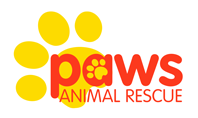Your Dog’s Health & Wellbeing
As part of being your dog’s primary carer, it is important that they are used to handling and human touch and that this is part of their daily routine. Daily physical health checks from early puppy hood right through to later life should take place on the day to day. This applies particularly in the summer time when external parasites like fleas and ticks can be picked up in rivers and in tall grass and attach to fur and things like grass seeds can get stuck into paw pads and irritate the paw. Running your hands down your dog’s back, tail, belly and down their legs and checking the brightness of their eyes, the cleanliness of ears, looking for cracks in paws and nails, how their joints feel and running your finger the opposite way of where their fur grows to check their skin for flea dirt, lumps and bumps or dryness are all apart of checking your dog’s over all health. Dogs that are in PAWS’ care are checked over on the regular and this also enables the PAWS staff to help get the rescue dogs used to handling and helps gives us an overall idea on how the dog responds to touch and whether they need to be reassured or if they are sensitive to a particular area. All of which gives a profile of each dog’s responses and personality to help give to new owners when the dogs get adopted and increases the success rate of adoptions.
Dogs that are adopted from PAWS have all been checked over and cleared by a vet to ensure they are happy and healthy and ready to begin their new lives as much loved members of family. However, it is important to remember that rescue dogs often come with their own histories and may have had bad starts to life and may need extra attention or encouragement to get them used to day to day routine touch and handling. A rescue dog may not like his ears or paws touched, they could be fearful around strangers, they may have had an experience with rough handling and be difficult to put a lead on or may have never even worn a collar and need some time to adjust to new things they may never have experienced before. All dogs can be trained and adjust to new things with time, lots of praise and treats, and be encouraged through allowing them to adjust through understanding and gentle handling. Rewiring a rescue dog’s mental process and being able to read their calming signals (these are: yawning, licking of the lips, moving away, glancing or staring away from you showing the whites of their eyes, rigid posture or stillness etc) will help with getting a rescue dog used to handling so you know when they are beginning to show stress and you need to leave them alone. This shows them that they are being listened to and enabling them to cope with the touching process. They will then be able to relax and see being handled as an enjoyable experience. Building the time up then each day will build a dog’s confidence and relaxation. The most important thing is time and understanding and allowing your dog to adjust and cope with all the new things that come with starting a new life with you being healthy and happy.




